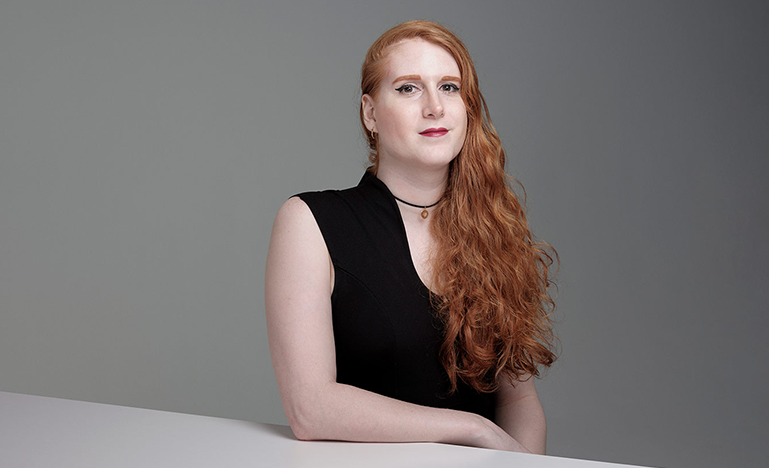Banning transgender conversion practices
Florence Ashley’s first book is an important legal and policy guide to eradicating conversion practices.

You know an author has succeeded when the reader doesn’t realize how easily a book reads despite its complex subject matter. Florence Ashley, who uses the pronouns they/them, is a transfeminine scholar at the University of Toronto Faculty of Law and Joint Centre for Bioethics. They were the 2019 recipient of the Canadian Bar Association’s SOGIC Hero Award. Their first book, Banning Transgender Conversion Practices, just published by UBC Press, is nothing short of a rhetorical tour de force.
The subject matter is not easy, given how emotional people can get when it comes to providing affirming care to trans and gender-diverse people. Ashley is all too familiar with being on the receiving end of social media abuse. In writing a legal and policy analysis of the subject, they contribute to lowering the temperature. In doing so, they also bring a welcome dose of clarity, knowledge and information to the issue.
Ashley has strong opinions on the matter and does not hide them. “As a jurist, a bioethicist, and a concerned member of trans communities,” they write in the introduction, “I am interested in how bans on trans conversion practices work. What does a standard ban look like, and what is its scope? What are the different variants that these laws take? Do these laws stand up to constitutional scrutiny? What are the advantages and disadvantages of legislative approaches to trans conversion practices? How may we improve (upon) them? These questions animate my writing.”
There is no debate in Ashley’s mind about whether we should eliminate those practices, which they call harmful and degrading. “I take as my starting point that trans conversion practices ought to be eliminated, and that bans on trans conversion practices, although not a panacea, contribute towards that goal.”
In an interview with CBA National, they explained that they see part of the job “as at least getting a few people to open their ears and hearts.” Ashley does that by grounding their work in thorough research and presenting it in a language that is clear and concise. The result is compelling.
Banning Transgender Conversion Practices follows a logical progression, from explaining what conversion practices are to describing the scope bans ought to have, explaining the various existing bans around the world, the objections and challenges to bans, their benefits and limitations, and how to develop an affirming professional culture.
Of particular interest to jurists is Chapter 7, an annotated model law for prohibiting conversion practices. “The laws that have been adopted thus far,” Ashley writes, “are an important step towards eradicating conversion practices.” But most of them contain flaws that “impeded their ability to effectively discourage conversion practices.”
The model law is designed to help legislators and policy-makers craft effective prohibitions, and assist judges and lawyers faced with litigation related to conversion practices.
Ashley wants to “question our lawmaking impulses, particularly when it comes to solving social problems,” as they explained to CBA National. Their book is dedicated to the idea that having allies is not enough, for two reasons. “The first one is, it’s not just a matter of exactly what the scope of the law is. It’s also what the law does within the social world.” Ashley sees a crying need to think of the law “as a pedagogical tool rather than a repressive tool.” The second reason is that no matter how good your law is, it will not be enough on its own, in great part because most survivors of conversion practices are not in a position to access the court system, especially if they are already marginalized.
We could, and should, work to improve access to justice. “But at the end of the day,” they say, “it’s still only ever going to be a small proportion of survivors who will actually ever go through the legal system. We need to think about our judicial philosophy. We often talk about laws of deterrence. And yet, our legal drafting rarely reflects an understanding of how law works in most people’s lives, which is through self-advocacy and through education.”
As an example, Ashley points to laws that protect people from being forced to pay a deposit on a residential lease. “It very clearly means that people can go to their lender and say, ‘hell no, I’m not paying for that,’ and advocate for themselves. It’s really important for laws to be an empowering tool that people can take and use in their everyday life.”
Ashley’s first book is a must-read for jurists, healthcare professionals and policy folks who want to understand this critical issue in a clear, concise, yet thorough manner.


